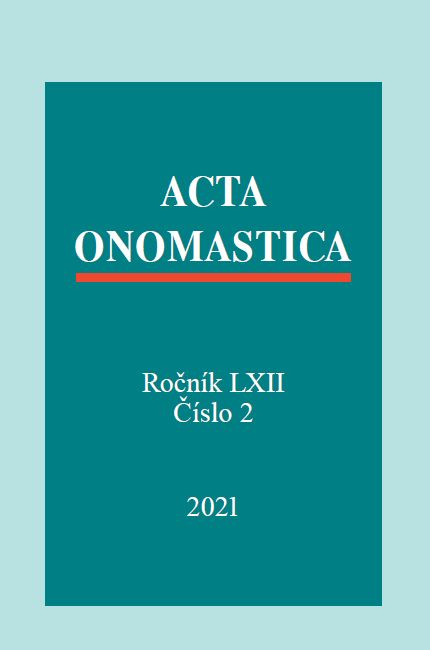Dog naming strategies in Beijing, P. R. China
Dog naming strategies in Beijing, P. R. China
Author(s): Tereza SlaměníkováSubject(s): Sociolinguistics
Published by: AV ČR - Akademie věd České republiky - Ústav pro jazyk český
Keywords: Modern Chinese; zoonyms; urbozoonyms; dog names; anthropomorphization
Summary/Abstract: China has been experiencing a boom in pet ownership since the beginning of the newmillennium. The notable number of dog walkers, strolling along the streets and inpublic parks, are an obvious sign that dogs are one of the most often sought-after companionanimals. One of the first steps associated with having a dog is usually the selectionof a suitable name. This paper examines how the growing phenomenon of dogbreeding is reflected in the Chinese onomastic system. First, it provides the generallinguistic characteristics of the dog names, i.e. describing the repeatedly occurringword-formation patterns and thematic categories of the lexical items used to createdog names, as well as addressing the issue of the motives behind the names. Second,it examines whether dog naming practices in China follow the existing conventionsdescribed in relation to other languages. The results of the analysis indicate that, unlikethe situation observed in Western languages, Chinese dog names seem not onlyto exhibit signs of anthromorphization, but also to preserve the pre-modern practiceof name selection based on the dog’s physical and mental qualities or reflecting thecircumstances under which the dog came to the family, and thus represent a uniquecombination of earlier and modern-day dog naming practices.
Journal: Acta Onomastica
- Issue Year: 62/2021
- Issue No: 2
- Page Range: 419-434
- Page Count: 16
- Language: English

